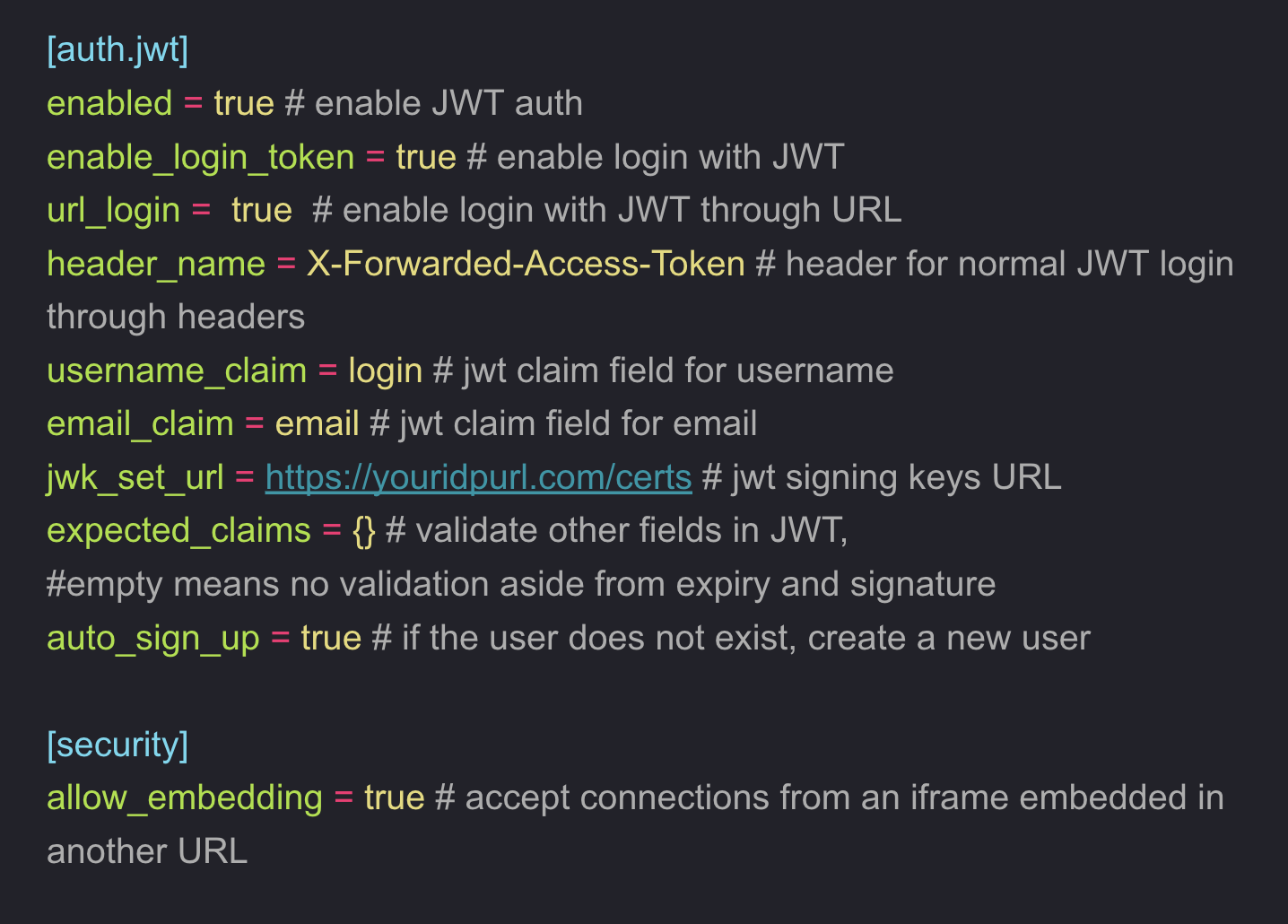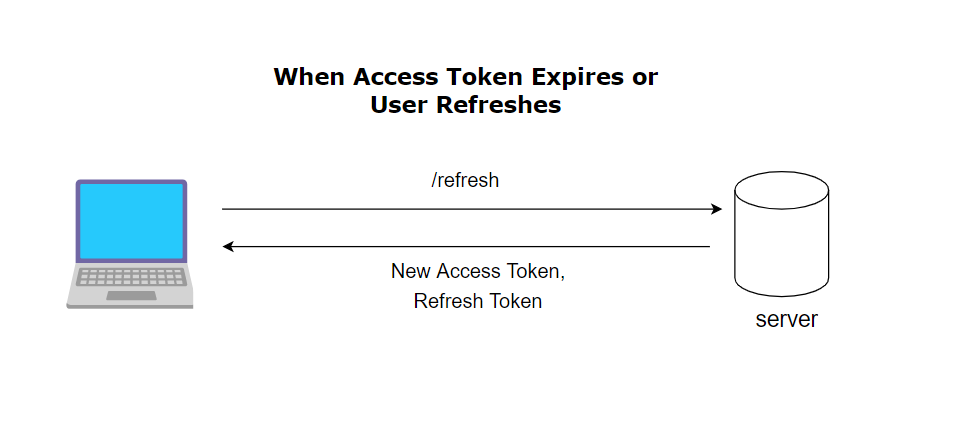To change the expiration time of a JWT token, you can update the “exp” claim value within the token payload.

Credit: grafana.com
Understanding Jwt Token
When working with authentication and authorization in web applications, a JWT token plays a crucial role. JWT stands for JSON Web Token and is a compact and self-contained way of securely transmitting information between parties as a JSON object. In this section, we will take a closer look at what a JWT token is and its components.
What Is A Jwt Token?
A JWT token is an encoded string that consists of three parts: the header, the payload, and the signature. It follows a specific structure and is typically used as a means of authentication in modern web applications. The token is cryptographically signed to ensure its integrity and authenticity.
Components Of A Jwt Token
A JWT token is composed of three parts, as mentioned earlier:
- Header: The header contains information about the type of token and the signing algorithm used. It is represented as a JSON object and is Base64Url encoded.
- Payload: The payload contains the claims or statements about the user and any additional data. Common claims include the user’s identifier, role, and expiration time. Like the header, the payload is also Base64Url encoded.
- Signature: The signature is a cryptographic hash that ensures the integrity of the token. It is generated using the encoded header, the encoded payload, and a secret key known only to the server. The signature is used to verify the authenticity of the token.
These three components are concatenated using a period (.) character to form a JWT token. The resulting token can be used to authenticate and authorize API requests, allowing users to access protected resources based on the information contained within the token.

Credit: www.geeksforgeeks.org
Expert Tips To Extend Jwt Token Expiration Time
Expert Tips to Extend JWT Token Expiration TimeWhen working with JSON Web Tokens (JWT), it is essential to consider the expiration time to ensure security and protect sensitive data. By default, JWT tokens have a predefined expiration time, typically set to a short duration. However, in certain scenarios, you may need to extend this expiration time for improved usability and user experience. In this section, we will explore expert tips on how to extend JWT token expiration time.
Selecting A Longer Expiration Time
To begin, selecting a longer expiration time for your JWT tokens can significantly enhance their usability. By allowing tokens to remain valid for an extended period, you reduce the frequency of token refreshes and subsequent user authentication requests. This not only improves performance but also minimizes the risk of token renewal delays leading to session timeouts.
To select an appropriate expiration time, consider the specific needs of your application and the sensitivity of the data involved. Keep in mind that longer expiration times can increase the window of opportunity for potential security breaches. Therefore, it is crucial to strike a balance between usability and security.
Implementing Token Refresh Mechanism
Another expert tip to extend JWT token expiration time is to implement a token refresh mechanism. This mechanism allows for the automatic renewal of tokens before they expire, ensuring a seamless user experience while maintaining security.
To implement this mechanism, you can include a refresh token in the JWT payload. When a token is nearing its expiration, clients can use the refresh token to request a new token without requiring the user to reauthenticate. However, it is vital to handle refresh token storage securely to prevent unauthorized access and token misuse.
Handling Token Expiration Gracefully
Handling token expiration gracefully is crucial to ensure uninterrupted user sessions and a positive user experience. When a token expires, it is vital to handle the expiration event appropriately and inform the user of the need to authenticate again.
To handle token expiration, you can employ various strategies, such as redirecting the user to a login page, displaying a session timeout message, or implementing an automatic token renewal process. By handling token expiration gracefully, you reduce user frustration and enhance the overall usability of your application.
In conclusion, extending the expiration time of JWT tokens requires careful consideration of usability, security, and user experience. By selecting a longer expiration time, implementing a token refresh mechanism, and handling token expiration gracefully, you can maximize the usability and security of your application.

Credit: powerusers.microsoft.com
Frequently Asked Questions For How To Change Jwt Token Expiration Time
How Do I Change The Expiration Time Of A Jwt Token?
To change the expiration time of a Jwt token, you need to modify the token’s payload during the creation process. By setting the “exp” claim with a new expiration time, you can control when the token will expire and become invalid.
What Impact Does Changing The Jwt Token Expiration Time Have?
Changing the Jwt token expiration time allows you to control the validity period of the token. This can enhance security by ensuring that tokens become invalid after a certain time, reducing the risk of unauthorized access to sensitive data.
Can I Set A Custom Expiration Time For Each Jwt Token?
Yes, you can set a custom expiration time for each Jwt token. By adjusting the “exp” claim value during token creation, you have the flexibility to specify different expiration times based on your application’s requirements.
How Does Changing The Jwt Token Expiration Time Affect Authentication?
If you change the Jwt token expiration time, it will impact the authentication process. Tokens with expired expiration times will no longer be considered valid, requiring users to re-authenticate in order to access protected resources.
Conclusion
Changing the Jwt token expiration time is an essential step to ensure the security and efficiency of your application. By following the simple steps outlined you can easily customize the expiration time to meet your specific needs. Remember to consider the trade-off between security and user experience when making these changes.
Taking a proactive approach to managing token expiration can help safeguard against unauthorized access and ensure seamless user experiences. So, why wait? Start implementing these strategies today and optimize your token expiration time.

